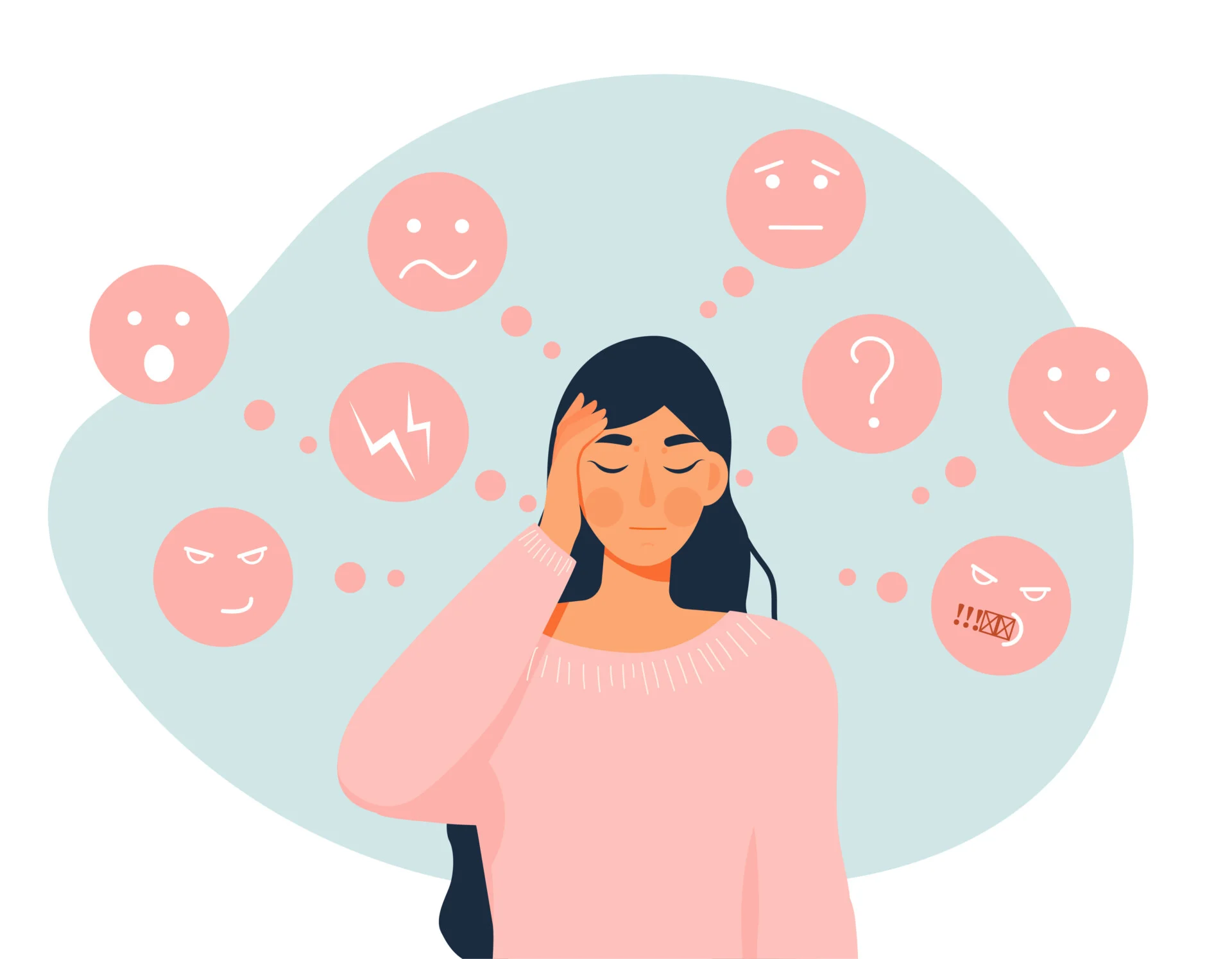Mood disorders affect millions of individuals worldwide, influencing their emotional well-being and overall quality of life. These conditions can manifest in various forms and intensities, significantly impacting one’s ability to function and engage in day-to-day activities. This article aims to shed light on the symptoms of mood disorders and address some common questions people often have regarding these conditions.
Symptoms of Mood Disorders
Persistent Sadness or Low Mood
One of the defining characteristics of mood disorders is an enduring feeling of sadness, hopelessness, or emptiness. Individuals may experience a prolonged period of melancholy without an apparent cause or trigger.
Loss of Interest or Pleasure
A decreased interest in activities or hobbies once enjoyed is a prominent symptom of mood disorders. This can extend to social withdrawal, leading to reduced interaction with friends and family.
Fatigue and Lack of Energy
People with mood disorders often report feeling tired, physically drained, or lacking energy even after adequate rest. This persistent fatigue can significantly impair daily functioning and motivation levels.
Changes in Appetite and Weight
Significant fluctuations in appetite, leading to weight loss or weight gain, may result from mood disorders. Some individuals may experience an increased craving for comfort foods during depressive episodes, while others may lose interest in eating altogether.
Sleep Disturbances
Alterations in sleep patterns, such as insomnia or excessive sleeping, are common symptoms of mood disorders. Insomnia can manifest as difficulty falling asleep, frequent awakenings during the night, or waking up too early in the morning.
Restlessness or Agitation
Feelings of restlessness, pacing, or the inability to sit still are often observed in individuals with certain mood disorders, such as anxiety-related conditions.
Difficulty Concentrating or Making Decisions
Cognitive impairment is a challenging aspect of mood disorders. People may find it hard to focus, have reduced attention spans, and struggle with making decisions, which can significantly impact work or academic performance.
Common questions and answers about Mood Disorders
1. What causes mood disorders?
The exact causes of mood disorders are not fully understood. However, a combination of genetic, environmental, and hormonal factors is believed to contribute to their development. Life events, chronic stress, a family history of mental health conditions, or a chemical imbalance in the brain may also play a role.
2. Are mood disorders treatable?
Yes, mood disorders are highly treatable. A combination of therapies, including psychotherapy or counseling and medication management, is commonly recommended. Lifestyle changes such as regular exercise, healthy eating habits, maintaining a supportive social network, and stress management techniques may also be beneficial.
3. Can children or teenagers have mood disorders?
Yes, mood disorders can affect individuals of all ages, including children and teenagers. A diagnosed mood disorder in childhood or adolescence is typically characterized by persistent sadness, irritability, changes in appetite or sleep patterns, social withdrawal, academic decline, or behavioral problems.
4. Can mood disorders be cured?
While mood disorders cannot be completely cured, they can be effectively managed with appropriate treatment. Many individuals experience significant relief from symptoms and regain control over their lives through consistent treatment, therapy, and self-care practices.
5. How can I support someone with a mood disorder?
Understanding, empathy, and open communication are vital in supporting individuals with mood disorders. Encourage them to seek professional help and offer to accompany them to appointments if needed. Educate yourself about their condition and be available to listen without judgment. Actively participate in their treatment plan and assist in maintaining a healthy lifestyle.

Remember, it is crucial to consult a mental health professional if you or someone you know exhibits symptoms of a mood disorder. Seeking timely intervention can lead to appropriate treatment, enabling individuals to regain emotional balance and improve their overall well-being.




